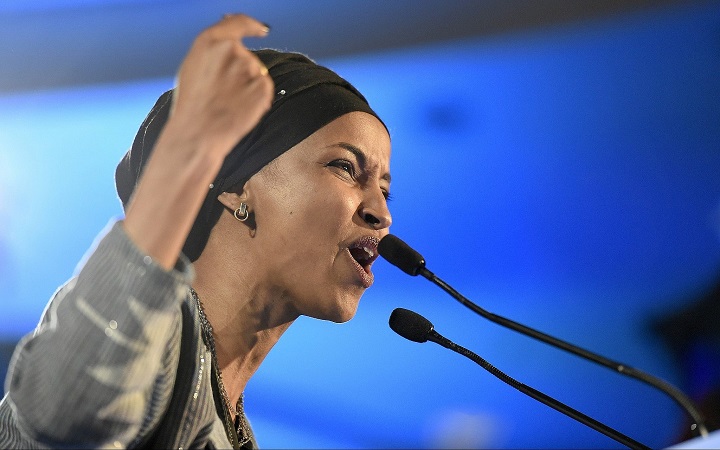It happened again last month in Detroit. Pro-Palestinian demonstrators seized the stage of the National LGBTQ Task Force’s marquee conference, “Creating Change” and demanded a boycott of Israel. “From the river to the sea, Palestine will be free,” they chanted – the tediously malign, thinly veiled call to end Israel as a Jewish state.
They were met with sustained applause by the audience at what is the largest annual conference of LGBTQ activists in the United States. Conference organisers did nothing to stop the disruption or disavow the demonstrators.
For Tyler Gregory, neither the behaviour of the protesters nor the passivity of the organisers came as a surprise. Gregory is executive director of A Wider Bridge, a North American LGBTQ organisation that works to support Israel and its gay community. In 2016, his group hosted a reception at the Task Force’s conference in Chicago. The event was mobbed by some 200 aggressive demonstrators, and Gregory and his audience had to barricade themselves in their room while those outside were harassed.
“Whether you believe in the concept of intersectionality is beside the point,” Gregory told me recently, referring to the idea that the oppression of one group is the oppression of all others. “If this is your value system, you are not following it. As Jews we were denied our safe space. We were denied our place in a movement that fights bigotry.”
Scenes of the kind that played out at the LGBTQ conferences – not to mention college campuses across the United States – are familiar to anyone involved in the politics of the American Jewish community. They have burst into wider consciousness in recent months, thanks to revelations that Jewish organisers of the 2017 Women’s March were deliberately sidelined, excluded and attacked by some of its founders, at least one of whom, activist Tamika Mallory, is an unapologetic admirer of Louis Farrakhan, the Nation of Islam’s unapologetically anti-Semitic leader.
They have also burst into Congress, largely as a result of the election of Democratic representatives Rashida Tlaib of Michigan and Ilhan Omar of Minnesota. Both women support boycotts of Israel. Both have also written tweets with distinctly anti-Semitic undertones. Far from being reproached or condemned by their party, as Iowa’s Steve King was by Republicans, they have become Democratic rock stars. (Omar, to her credit, recanted her tweet; Tlaib did not.)
Read the article by Bret Stephens in the Australian Financial Review (from The New York Times).

